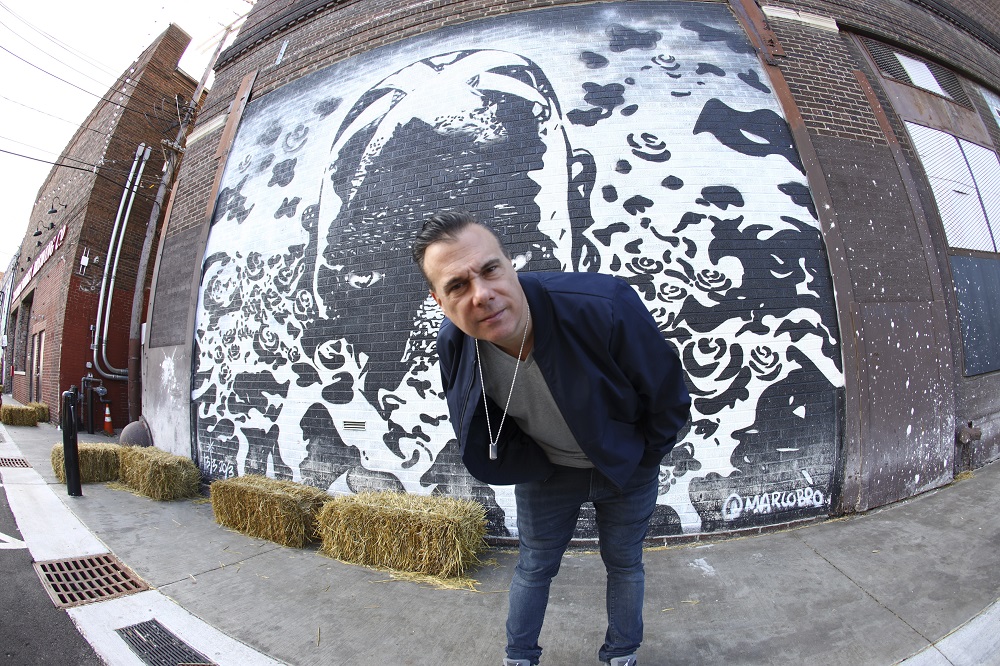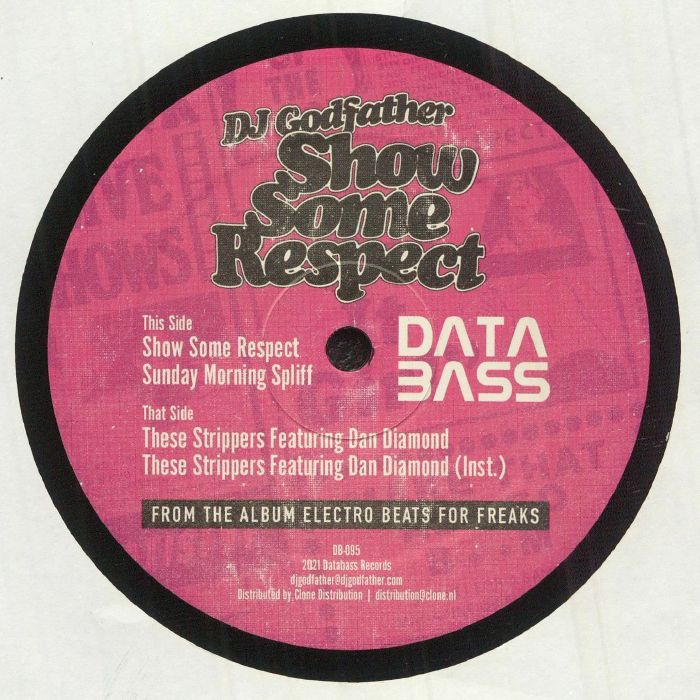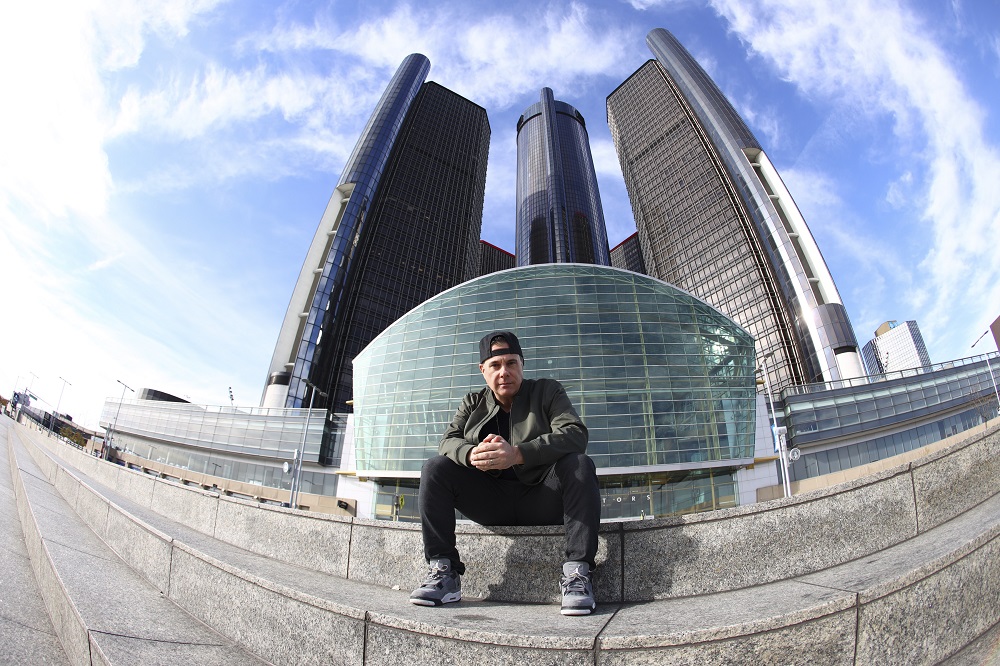“Everything I do is strategic” – DJ Godfather on mixing business with culture
We meet Detroit’s ghettotech-nician in chief

Your first encounter with Brian Jeffries will not fade from memory. Probably in some tightly-packed subterranean space with a mutated form of 145+ BPM grit threatening to knock walls down, bricks crumbling beneath kicks, his reputation as tour de force of the Detroit underground is well documented. The phenomenal work rate behind the scenes is perhaps less widely discussed.
Last year was a prime example. Although it took the man better known as DJ Godfather almost three decades to release a full album, Electro Beats For Freaks, when it landed in 2020 the finished record consisted of 44 tracks, referencing Bmore, juke, electro and the ghettotech sound he remains key global flag-bearer for. This is currently being followed by a string of seven EPs – the latest of which, Show Some Respect, landed this week – reconfigured pieces from the full length aimed at providing others with useful mixing tools. And as he explains via Zoom, against a distracting array of synths, drum machines and samplers, all this barely scratches the surface.

“The next album is actually 48 songs,” Godfather says of a forthcoming project after recounting how his inaugural LP was already chopped down from 60. He then makes it clear a third full length is also pencilled in. “That one’s not going to be 48, that one’s only going to be about 14 or 15 songs. I’ve done 24 for it so far and I’m just going to pick the best 15 and blend it. I’m doing that because it’s electro, deep burners, these songs are six minutes long, whereas a lot of ghettotech tracks are only three minutes.”
Short, not necessarily sweet, but definitely heavy, the brevity of Godfather’s recent album tracks defines the ghettotech sound and tells you everything there is to know about this end of the Detroit turntable scene. Highly physical, often-breakneck sets might not throw everything and the sink in sonically — this is a sound somewhat out on its own. But the frenetic juggles, stabs, spins and cuts are enough to keep everyone glued. Our conversation moves to the art, or perhaps science, of DJing.
“The the art of turntablism is definitely almost gone,” Godfather says with some lamentation. “When I started DJing, I started out as a battle DJ. All I did was put a beat on the left and try to practice scratching on my right. Then practice juggling. I could scratch and jump and be juggling tracks before I could blend records together, because I wasn’t trying to be a club DJ when I first started.
“[Turntablism’s downfall] isn’t even a technology thing, which you can never get mad at, because things change. You have to adapt, you know,” he continues. “But I think now there are more and more people getting into DJing for all the wrong reasons. Like they don’t give a shit about the culture of certain kinds of music or certain genres. They don’t care. I think there’s a lot more of that now, which is changing the DJ scene.
“You know, like I say, technology faded away the turntablism thing, but you can’t get mad at that. But I can get mad at many DJs. I had some, Playboy models that live in Michigan and the Detroit area, saying ‘we want to DJ, and do appearances. Show us how’,” Godfather recounts through tangible exasperation. “Like, no, what do you mean? I got to ask you, why do you want to do it?”

The idea of cultural misrepresentation takes us into the often disconnected relationship between media and artists. Although keen to point out how sick he is of answering the apparently 25-year-old question — ‘what is ghettotech?’ — Godfather soon begins expounding on how sexually charged lyrics often take centre stage when people write about the genre itself. “I think some journalists, you know, they have tunnel vision… ‘given today’s climate, are the lyrics appropriate?’
“Out of all the songs on the album there are a couple with lyrics. We’re still talking like this is the late-80s and 2 Live Crew are going to court,” Godfather says.“I could turn on the internet and watch someone get their head blown off. Or I could switch and go to another site and watch as much porn as I want. Or watch like, a fucking alligator eating a bite out of a dog or a mass shooting. All that is at your fingertips.
“I think those journalists don’t understand the culture, which is fine because you’re in a different part of the world than me and so I grew up to different things in Detroit. Different sounds and influences than you have,” he continues. “You know, I understand if someone truly wants to learn but then also like, I also think a lot of people they don’t take the time to learn the entire culture of something first, you know? That’s kind of why my next album title is This Detroit Thing of Ours.”
Ghettotech is an aural recipe that remains unique to Godfather’s hometown, although as we get into the nitty gritty of this micro-scene he’s quick to point out similarities with neighbouring subcultures. “It’s definitely a genre of music with its own culture. And, in my opinion, it’s the only dance music that has its own kind of DJ style, you know, and its own footwork dances, you know. Like, they jit in Detroit and they juke in Chicago to ghetto house music. So they are similar cultures, you know, but Detroit ghettotech is definitely a culture thing,” he continues.
As we talk more on Detroit it doesn’t take long for the subject of business to come up. Godfather owns two clubs in the city, with a third ready to open as lockdowns continue to ease. Keeping these cogs turning throughout the pandemic was less problematic than many might assume thanks to a good understanding of contracts gleaned from years spent within nightlife as industry. Just before our time together reaches its conclusion he confesses the venues are financial interests, rather than creative, but one side cannot exist without the other.
“Everything I do is very strategic, you know, but there are things I do that are my heart and passion. I’ll never stop making ghettotech and Detroit electro and, you know…. When I make music I make it for me and I make it for the culture of Detroit music. I’m not trying to do things just to get a quick pay day. That’s what my businesses are for,” Godfather explains, before summarising his feelings with a knowing confidence. “If I’m going to open a club, you know, I’m not going to do it for the passion of music, I’m going to make my music for the passion of music.”
Martin Hewitt